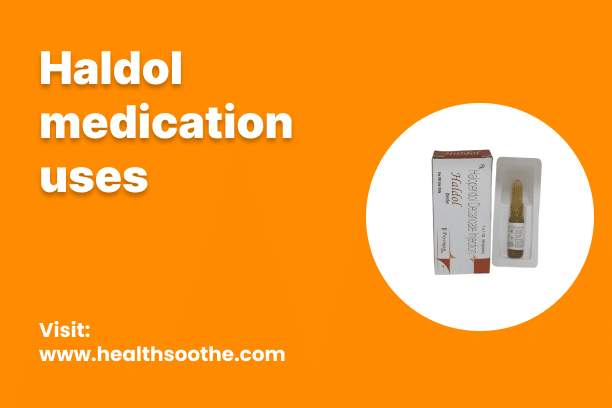Haldol is used to address symptoms of schizophrenia and to control tics and vocal outbursts in individuals diagnosed with Tourette's syndrome. Moreover, it is effective in managing behavioral problems in children. Administered orally, typically with water, in tablet form according to prescribed instructions, this medication is marketed under the brand name Haldol.
What is this medication?
Haloperidol is a medication primarily prescribed to treat schizophrenia and may also be utilized to alleviate symptoms of Tourette disorder. Additionally, it can be employed to address severe behavioral issues in children when conventional therapies have proven ineffective. Its mechanism of action involves balancing dopamine levels in the brain, a neurotransmitter crucial for regulating mood, behavior, and cognition. Classified as an antipsychotic, haloperidol belongs to a class of drugs used to manage various mental health disorders.
It's important to note that this medication may have other uses; therefore, individuals should consult their healthcare provider or pharmacist if they have any inquiries.
Commonly known by the brand name Haldol.
What should I tell my care team before I take this medication?
It's essential to inform your healthcare provider if you have any of the following conditions:
- Dementia
- Diabetes
- Difficulty swallowing
- Muscle control issues
- Heart disease
- History of irregular heartbeat
- Regular alcohol consumption
- Liver disease
- Low blood cell counts (white blood cells, platelets, or red blood cells)
- Low levels of potassium or magnesium in the blood
- Lung or respiratory conditions like asthma
- Parkinson's disease
- Seizures
- Thyroid disorders
- Any unusual or allergic reactions to haloperidol, other medications, foods, dyes, or preservatives
- Pregnancy or plans to become pregnant
- Breastfeeding
How should I use this medication?
- Take this medication orally with a glass of water as instructed on the prescription label.
- It can be taken with or without food.
- Take your doses at regular intervals as directed.
- Do not exceed the prescribed dosage or take it more frequently than recommended.
- Avoid suddenly discontinuing this medication. If you need to stop, your healthcare provider may advise you to gradually decrease the dose.
Regarding the use of this medication in children, consult your care team. Special considerations may be necessary. While it may be prescribed for certain conditions in children, precautions should be observed.
In case of overdose, contact a poison control center or emergency room immediately.
Important note: This medication is intended for your use only. Do not share it with others.
Read Also: 4 Critical Health Benefits of Quitting Drugs and Alcohol
Pros and Cons of haldol
Pros:
- Effectiveness
- Versatility
- Rapid onset
- Different formulations
Cons:
- Side effects
- Extrapyramidal symptoms (EPS)
- Tardive dyskinesia
- Metabolic effects
Differences Between haldol and Myrbetriq
Haldol:
Haldol is an antipsychotic medication primarily used to treat schizophrenia and other psychotic disorders. It can also be used to manage severe behavioral problems in children and certain movement disorders.
Myrbetriq:
Myrbetriq is a medication used to treat overactive bladder (OAB) symptoms, such as urinary urgency, frequency, and incontinence.
Alternative to haldol
Atypical Antipsychotics:
- Risperidone (Risperdal)
- Olanzapine (Zyprexa)
- Quetiapine (Seroquel)
- Aripiprazole (Abilify)
- Ziprasidone (Geodon)
- Clozapine (Clozaril)

